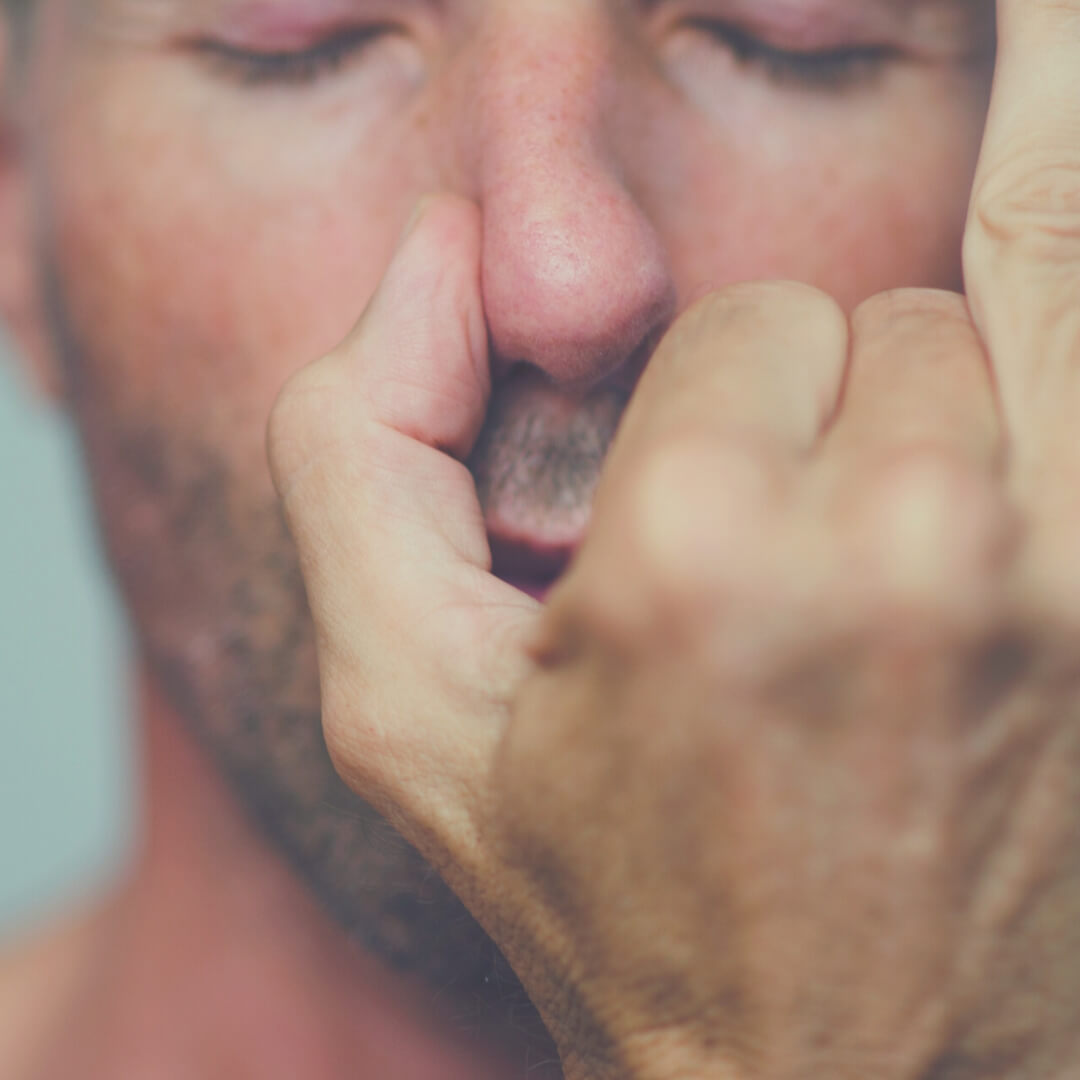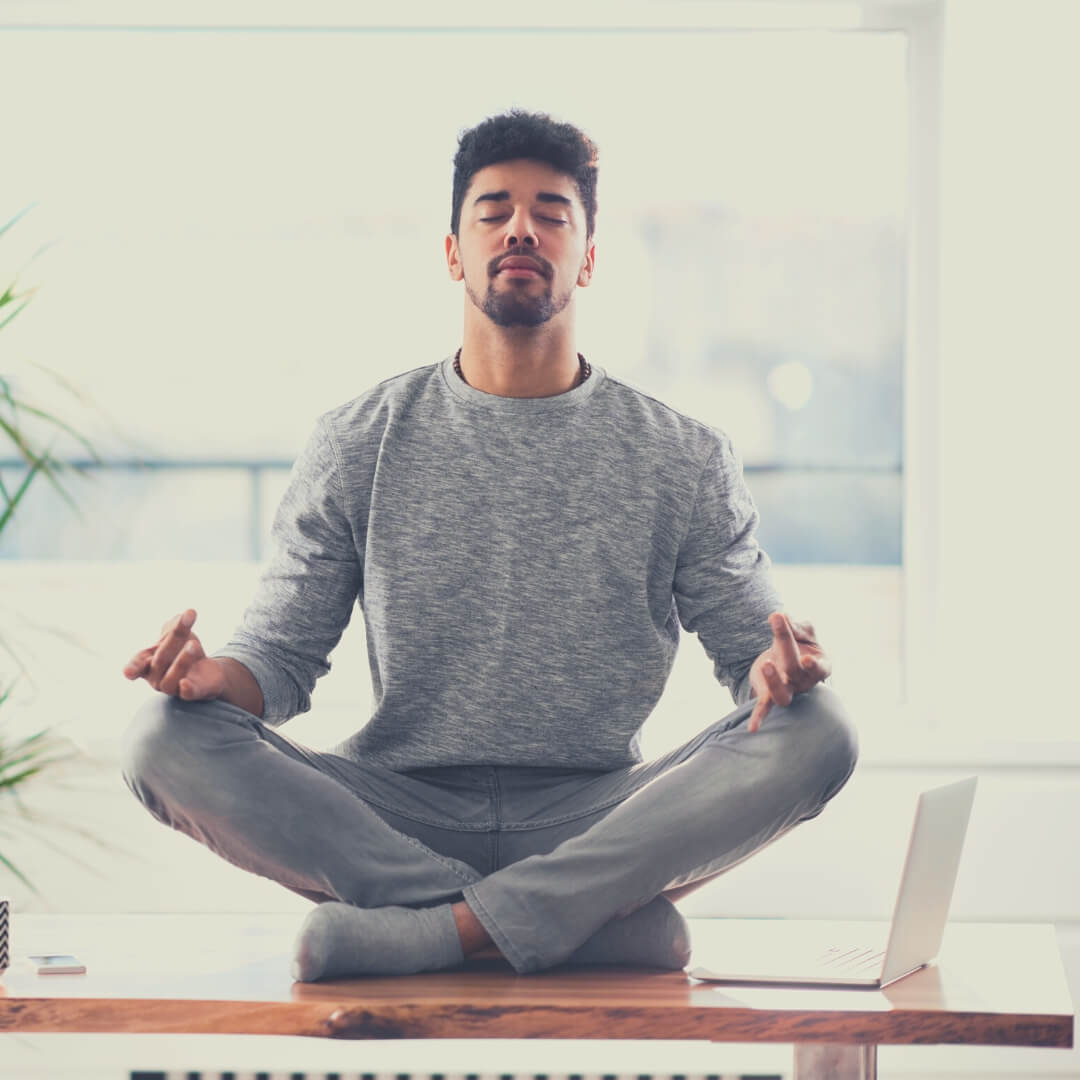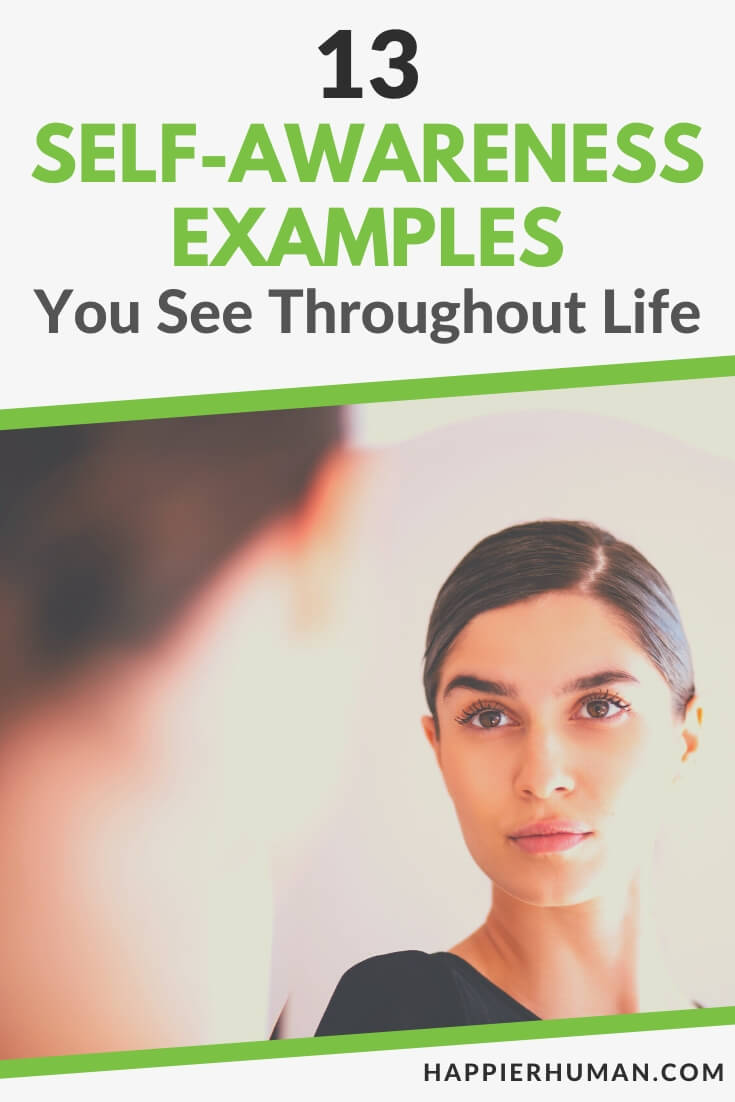When was the last time you looked at yourself in the mirror?
Recently, my family and I were at a local fun fair, and we happened to walk past the funny mirrors. You know the ones that distort your reflection and make you really tall, extra wide, or all bent and upside-down looking. I was struck by how clumsy we all look, and it was one of the few self awareness examples that really made sense to me.
We are often not aware of how our reflections, or the imprint of us, are twisted by the world around us. To really control your reflection or self, you need to be really aware and connected to yourself, your world, and the people around you.
But exactly what is self awareness and how do you use it to live a fuller life that is authentic to who you are? Let’s find out.
What Is Self Awareness?
To be self aware means you are fully aware of your character, what your motivations are, your desires, and how you are feeling in each moment. It’s quite a mouthful, but the simple truth is that self awareness is about knowing yourself and what you feel, think, experience, and are worthy of.
Self awareness is the catalyst for change, and if you can’t see yourself in the mirror of life, you will never be able to straighten out your own reflection—you will keep on being bent and twisted by the world around you.
Why Is Being Self Aware Important?
Being self aware is the key to initiating change. When I was standing at the funny mirrors, I could decide to step out of the reflection area of one mirror into the next if I didn’t like the reflection I was seeing. But, I had to see myself before I could take action and choose what I wanted.
Without self awareness, you are sailing blindly through life, not choosing, merely falling downhill.
Your self awareness is a bit like the onboard computer of your car—it helps you diagnose when your engine or existence is no longer idling authentically. Instead of purring through life, you are spluttering, and you don’t even know it.
If you don’t check yourself and reclaim self awareness, you will keep struggling needlessly through life. You have the power to find your authentic self and take the necessary steps to protect your self awareness.
Self awareness identifies where there are problems in your life. With self awareness examples, you can learn how to live your best life.
13 Self Awareness Examples
There are several ways in which you can practice and increase self awareness. Examples of self awareness include:
1. Growth Mindset
Being self aware means you can see where you are not a fully grown person yet. With self awareness, you begin to see how many aspects of your life work together, and you are then better able to grow these.
Having a growth mindset is vital for self awareness to really pay dividends on your life journey. Your self awareness allows you to use growth ideas in your own life. Like a gardener who knows which soil is right for a particular plant, you need to be self aware so you will know what growth ideals (plants) will work in your life (garden).

Action: To develop a growth mindset, you need to fully explore your life. Use and develop your self awareness by reflecting on what part of your life is still underdeveloped. Next, select a “plant” that you can cultivate here. If you are lonely, you can choose to join clubs or interest groups to meet new people.
Of course, you need to be self aware and practice self-reflection to really see where you are lacking and not just go through life in sulk mode.
2. Discover Your Habits
Do you do things without even knowing you do? We all do—this is called using a habit. This is great news if you don’t want to concentrate on a mundane task, like making coffee or vacuuming; but, it’s not so great if your habits are destructive or harmful to yourself or others.
When you are aware of the things you do without thinking, you are better able to own these habits, examine them, keep the good ones, and get rid of the bad ones. But how do you see a habit you don’t even know is there? You become more mindful.
Start practicing mindfulness activities like meditation, breathing, and yoga. By becoming more self aware and mindful of the things you do without thinking. Knowing what you do (especially when you don’t normally pay attention) will help you become more aware of who you are and what you do.
Action: Begin with some mindful breathing exercises each morning, and notice how you feel with each breath. Next, pay attention to what you are doing at each moment. It may be a simple awareness that you raise your head when you breathe in or you can discover a more profound habit that you didn’t know about like blinking repeatedly when someone makes you nervous.
Write down each of the habits you discover and state whether they are good or bad or neutral. Some habits are driven by anxiety and can become destructive so you need to be aware of these, identify them, and then work on changing them.
3. Create Boundaries
We may be taught that boundaries are a bad thing, but in your own life, setting up some barriers that keep things or people in or out can make or break you. The concept of a boundary may be quite simple, but it’s the application or stepping up to defend that boundary when it’s being threatened that indicates real self awareness.
If you have a boundary in place to keep strangers out of your physical and mental space, you need to police that boundary or it is meaningless (and worthless to your development). But the best way to enforce a boundary is to warn someone off before they cross the line.
To do this, you need an early warning system that will sound the alarm and let you know you need to act. Your self awareness is that alarm system.
Action: Think about the boundaries you have in your life (and the ones you need in your life). Write them down, if that helps. How would you take action to defend that boundary if it is being threatened? Write down the appropriate response that makes sense to you.
This is also a great exercise in discovering how indoctrinated you are by societal norms. Don’t let a valuable boundary go or hang back on acting when that boundary is crossed simply because of the notion of being polite or what’s accepted. Your boundaries, your rules.
4. Your Thoughts Become Actions
It may seem like such an obvious example of self awareness, but knowing and practicing the idea of your thoughts becoming actions is easier said than done. What you think has power, especially if you are aware of those thoughts.
However, the thoughts you aren’t aware of can be even more damaging if you don’t practice your self awareness and develop a deeper sense of awareness for your mind.
When you know your thoughts, you can take steps to help good ideas manifest and prevent poor ideas from ruining your life. Self awareness gives you the wisdom to know which thoughts are good and which are bad.
Action: When you are alone, start thinking out loud. Narrate your life, paying attention to the words that tumble from your mouth. What you say is what you’ve been thinking. The way you say things is also very revealing of your mental state.
When you are self aware, you will pick up on a negative “tone” of thoughts, and you will be better able to take action to remedy whatever is going on. If your thoughts go unnoticed, you may steer off a mental cliff without heeding the warning.
5. Discover Your Triggers
We all have triggers—emotional fuses that quickly trip when we find ourselves in a situation that we can’t accept. The result of a trigger being set off is that you may become quite irrational and act in a way that’s not in your best interest.
The only way to head off a trigger is to see that it’s sending off warning signs. Being self aware is how you detect your emotional temperature and can sense a trigger is about to erupt. Knowing where your triggers are, what it takes to trip them, and being mindful of your response to a trigger situation can help you remain calm under pressure.
A level-headed and calm individual is in touch with their triggers and they know what to do to remain calm and responsible. But how do you discover your triggers? It’s not like you can simply buy an instruction manual for your triggers.
Action: Reflection and introspection can build your self awareness. When you’ve come through a serious argument or challenging event, ask yourself what set you off. Try to think logically about the incident and look for evidence (not blame), so you can discover what makes you zing.
If you’re still stuck, you can ask a close friend if they’ve seen any triggers that they know sets you off. Once the triggers are identified, list the events or contributing factors that lead to the trigger snapping. Now plan what you’ll do next time the same set of events or incidents happen that triggered you.
6. Ask Why
Life is a mad rush, and most days you are probably barely keeping head above water with your career, social life, responsibilities, and more. The result is that you may have gone onto autopilot, and you may be stuck there.
Instead of questioning your life and daily experiences and thoughts, you are simply soldiering on. You stopped asking why and simply accepted everything. When you no longer live your life with intent, resentment forms inside you due to a complete lack of self awareness.
Start asking a very important question: why?

When you begin to question life and what happens to and because of you, it will boost the development of your self awareness. Ask why you didn’t get a promotion at work. Ask why you are not unhappy to have missed out on the promotion (maybe you didn’t want it). Question life and how you should respond to it.
Action: Remind yourself to ask why whenever you need to make a decision or take an action. Give yourself thinking time by waiting three seconds before you answer or do something. Those precious three seconds will give you enough time for your brain to kick into self awareness mode and reflect on the “why” before you do something simply to please others.
7. Adjust Your Inner Child
Many of us didn’t have the most appropriate or perfect childhoods. As a result, we struggle with issues that affect our inner child or our sense of innocence and trust. When you go through life as an adult denying the injuries their inner child suffered, you will always battle a feeling of not being authentic and not being accepted for who you truly are.
Self awareness helps you develop a clearer understanding of your inner child’s needs. When your inner child has adjusted to who you are now as an adult, you become more empowered to succeed. When you don’t take ownership of yourself and your subconscious self (your inner child), you will always feel like you are hiding behind a mask.
Action: Create a safe space for your inner child to come out and feel welcomed. Your self awareness can help you communicate with your inner child and learn about yourself, acknowledging the parts of yourself you had previously ignored.
Take your inner child on a date, explore creativity, and dream about your childhood, seeing it in a rainbow hue where change is always possible.
8. Embrace Empathy
A huge example of self awareness that we all need to develop is the ability to be empathetic to others. We can only see others authentically and have empathy with their lives when we can see ourselves clearly.
Self awareness can create an example of living by letting you see yourself, accept yourself for who you are, and show empathy to yourself. When you see and feel yourself, you can show empathy and understanding with others.
Action: Have a mirror conversation. Sit by a mirror, staring deeply into your own eyes. Wait patiently as your mind connects to your self awareness and your inner child. When you doubt yourself, share comfort. And when you feel foolish, assure yourself you are valued and looking at yourself in the mirror isn’t a waste of time.
Finally, share empathy with yourself. Accept your pain, experiences, and feelings.
9. Let Go of Past Experiences and Work on Facts
If you’ve failed in the past, you know that experience can make you hide from opportunity. You doubt your abilities because the past was a flop. However, you can also live with hope and push harder for future success.
Your self awareness is vital to letting go of a negative expectation that came from a past failure and instead focusing on who you are now and what you can do now. Knowing yourself is vital to letting go of the past and focusing on what is (not what was).
Action: Make a list of all the past successes you’ve had. Add big or small successes, such as when you won the coloring competition at school or when you successfully changed a flat tire on your own. This is you in all the glorious ups and downs. Even mistakes were learning opportunities.
Draw the successes and failures into your awareness. Now list the current tasks and events. How will you succeed? What will you do if you fail? Self awareness guides you like a kind teacher, so listen.
10. Ask others how they see you
We are naturally biased in favor of ourselves. We tend to believe we are good, kind, loving, or, sometimes, perfect humans. We really don’t like it when someone makes negative comments about our personalities and behaviors.
For instance, you may feel offended if people in your social circle say you’re arrogant, selfish, self-absorbed, abrasive, or withdrawn. Getting upset is easy if how others see you contradict how you see yourself.
As part of increasing self-awareness, you must find out how the world sees you. Here’s what to do. Ask your friends and family members to provide honest and unbiased feedback about your personality.
Do so with an open mind and be prepared to hear positive and unflattering opinions. The feedback will help give you a more accurate image of yourself.
Getting a third-party view of yourself helps you to be mindful of how you interact with and treat others. You may be encouraged to adjust behavior that causes conflict or prevents you from building healthy relationships. If you’re seen as a people-pleaser, then changing that trait could prevent people from taking advantage of you.
11. Keep checking in with yourself
We experience a variety of emotions on a daily basis depending on what’s going on in our environment. Those emotions such as happiness, anger, sadness, guilt, and embarrassment often influence our behavior within ourselves and around others.
Checking in with yourself throughout the day is one way to be mindful of the emotions you’re experiencing. Ask yourself, ‘How am I feeling right now?” Own the feeling instead of trying to bury or push it away. If you’re sad, say, “I feel sad.” Next, search your mind to figure out what’s triggering the feeling.
After identifying the trigger, brainstorm what you can do to improve your mood. The remedy might be a walk outdoors, meditating, journaling, or listening to healing music.
Being in touch with your feelings can also serve as a guide on when to do or not do something. Maybe you are scheduled to meet your friend but you’re not feeling enthusiastic about going. It’s okay to reschedule rather than to go and feel miserable throughout the activity.
12. Get to know your strengths and weaknesses
As you continue to discover yourself, take note of your strengths and weaknesses. These include employment skills and personal strengths, such as an ability to influence others. Maybe you’re creative, reliable, punctual, determined, a good listener, or a problem-solver.
Getting to know yourself in these areas helps you better understand your capabilities and your limitations. The information can guide you in making good decisions or asking for help in situations that are beyond you. You’ll learn where you need to improve, grow to appreciate yourself more, and even feel a lot more confident.

Here’s a helpful exercise. Consider writing down/listing your strengths and weaknesses in a bullet journal. Later, you can itemize thoughts, emotions, or events that cause you to give in to your weaknesses. Reflect on what you wrote and determine how you can overcome them.
Another exercise is figuring out how to harness or use your strengths in ways that don’t leave you at a disadvantage. For example, being a detail-oriented person (employment strength) could result in submitting projects late (a disadvantage).
13. Trust your intuition
Each of us has intuitive abilities or an ability to know, understand, or discern something without stopping to reason or having any direct evidence.
It’s almost near psychic as it extends past the rational mind and into areas of sensing and feeling. People with high empathy, or empaths, appear to know things intuitively such as when someone is confused, upset, or hurt.
Some people trust their intuition or ‘gut instinct’ to make decisions or decide how to interact with the world more than others do. Those decisions may go against rational or logical thinking.
How often do you rely on your natural ability to figure something out or know what’s about to happen? Do you often dismiss intuitive thoughts or revelations as nonsense? To be in tune with your intuition as you increase internal self-awareness, start paying attention to the information coming from your five senses.
What does it tell you to do? As long as it is safe to do, test your hunches and see if your intuition was spot on. Beyond that, embracing and trusting your intuition can keep you out of harm’s way or align you with positive outcomes.
Final Thoughts on Self Awareness Examples
There are many examples of self awareness that we can discover every day if we are just willing to open our eyes and look. For me, the revelation that I could move out of situations that made me feel strange happened when I looked at my twisted reflection in the fun fair’s mirrors.
You can literally look at your reflection, see your life laid bare and choose to embrace self awareness… using this almost naked experience to learn and grow. Being self aware is the first step in the journey to being resilient, confident, and successful. Part of your self awareness journey can include taking a personality test.
You may be surprised at what you discover! You can also read up on apps for mental health, which can be a tremendously helpful tool as well to help keep you centered and focused.
And if you're looking for more resources on self-awareness, be sure to check out these blog posts:
- 15 Signs Someone Has a Lack of Self-Awareness
- 11 Steps to Be More Self-Aware Throughout Your Life
- 12 Self-Awareness Activities for Kids & Young Students


